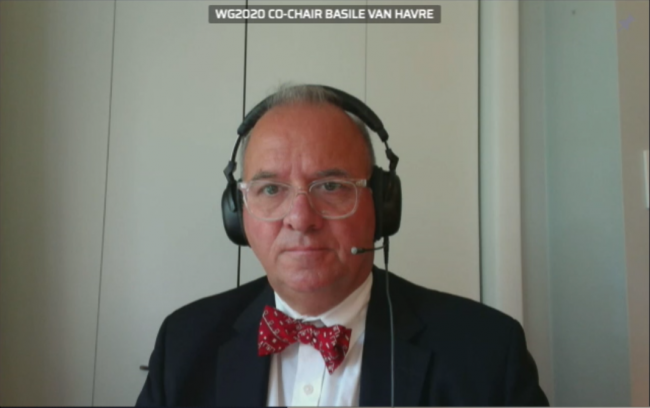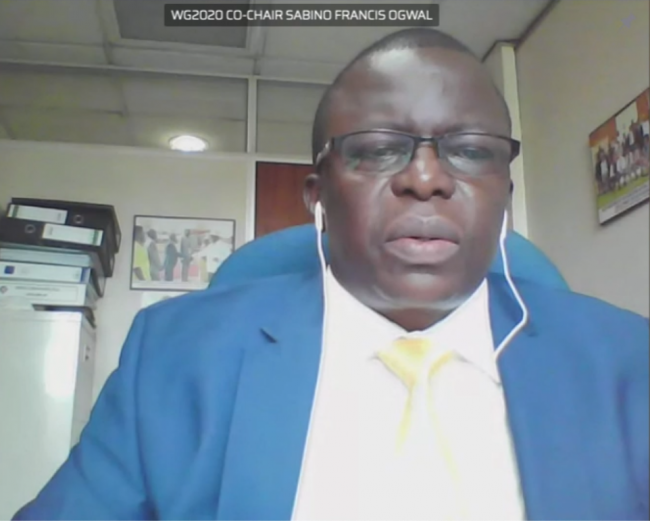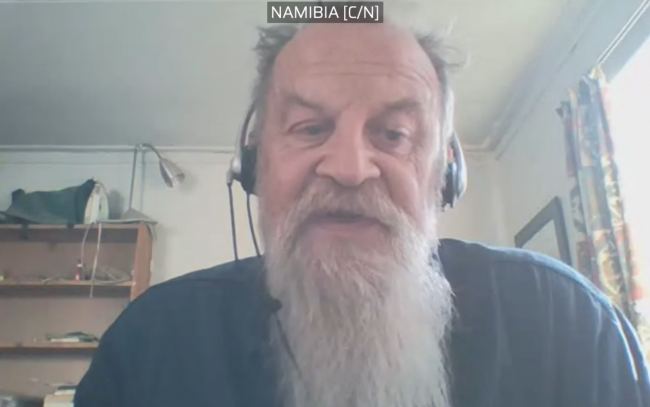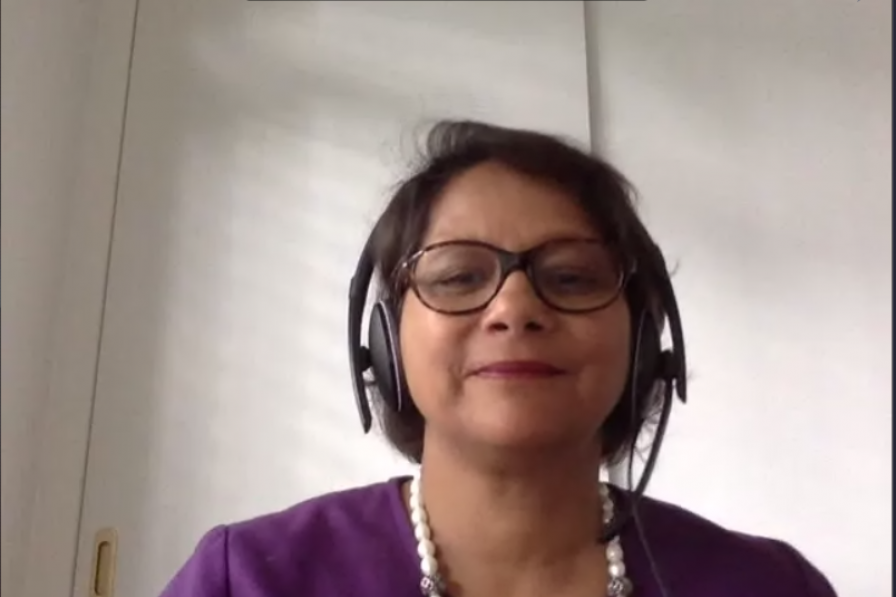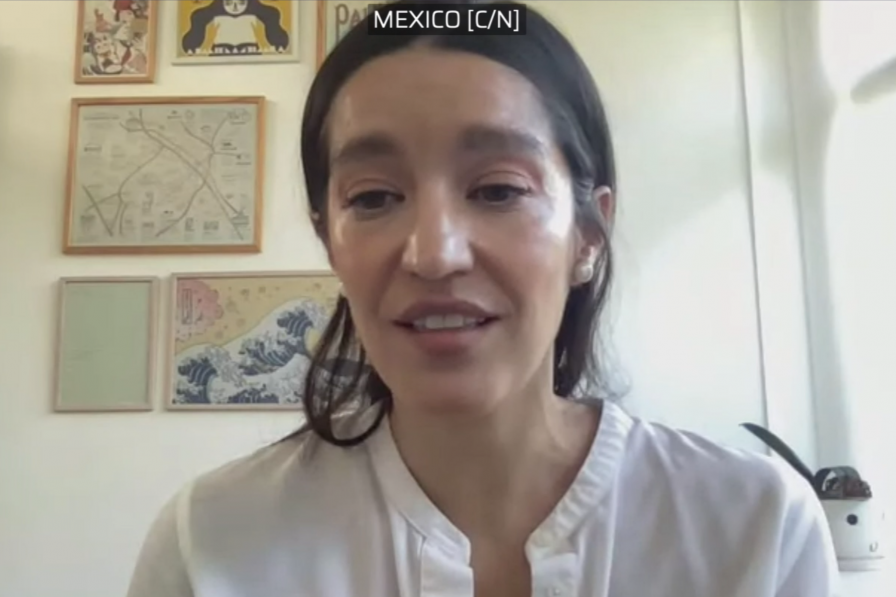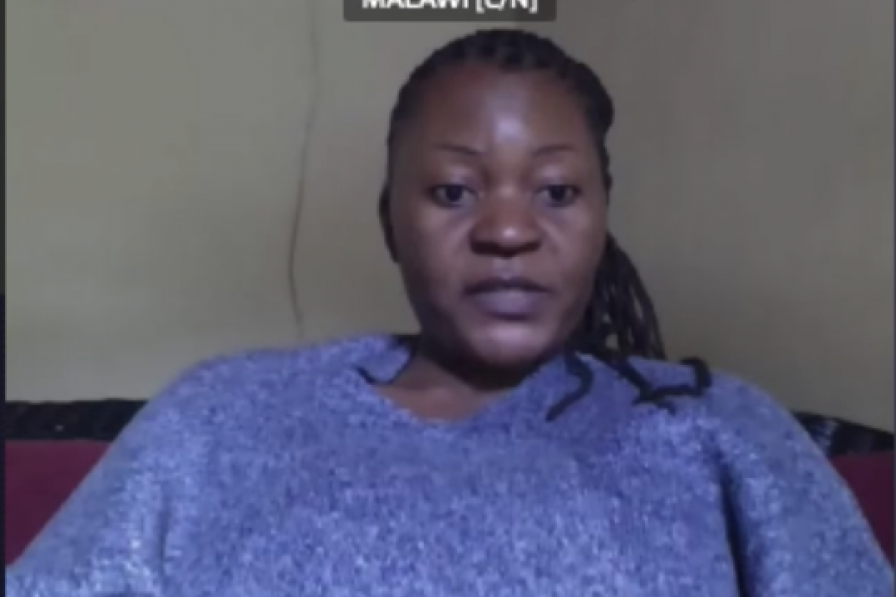After a year’s delay due to the COVID-19 pandemic, the Open-ended Intersessional Working Group on the Post-2020 global biodiversity framework (GBF) convened online for its third meeting. This meeting, which will negotiate on the basis of a first draft of the GBF prepared by Co-Chairs Francis Ogwal (Uganda) and Basile van Havre (Canada), is an important step to producing an ambitious GBF that will drive the transformational change required to curb the loss of biodiversity worldwide.
Co-Chair Ogwal opened the meeting with a moment of silence in memory of those whose lives have been lost to COVID-19. On behalf of the Presidency of the fourteenth meeting of the Conference of the Parties (COP14), Hamdallah Zedan (Egypt), referred to this meeting as a “make or break moment” for both the people and the planet with the impacts of climate change, from droughts, to floods, to unstoppable wildfires, making it necessary to urgently address the interlinkages with biodiversity.
Co-Chair van Havre announced that the Convention on Biological Diversity’s (CBD) COP15 would convene in two parts, the first from 11-15 October 2021, virtually with limited on site presence, and the second in person in Kunming, China, from 25 April to 8 May 2022. On behalf of the COP15 Presidency, Zhao Yingmin, Vice Minister, Ministry of Ecology and Environment (China), highlighted a two-day high level segment to adopt the Kunming Declaration, which is meant to boost the confidence of the international community.
CBD Executive Secretary Elizabeth Maruma Mrema recognized that the road since the second meeting of the Working Group has been longer and more winding than expected, and lauded the efforts to produce a first draft of the GBF with four goals, 21 targets and 10 milestones.
On behalf of the host of the meeting, Ambassador Carlos Morales, Ministry of Foreign Affairs (Colombia), said this third meeting of the Working Group is one of the final stages of a long process since CBD COP14. He urged parties to negotiate actions towards sustainable consumption and production patterns and achievements of sustainable development.
After addressing organizational matters and progress since its second meeting, the Working Group began discussions on digital sequence information (DSI). Since this was the first time the issue has been discussed by the Working Group, the Ad Hoc Technical Expert Group (AHTEG) Co-Chair, Christopher Lyle (UK), provided an overview of the work undertaken, including options for terminology and scope of DSI. Co-Chair Ogwal described informal processes and possible policy options under this topic. The subsequent interventions ranged from a number of developing and megadiverse countries stressing the importance of benefit-sharing for DSI to be integrated in the GBF and to others maintaining that DSI does not fall under the CBD's mandate.
To receive free coverage of global environmental events delivered to your inbox, subscribe to the ENB Update newsletter.


